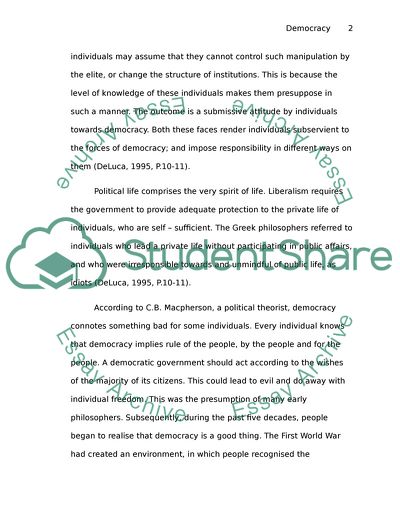Cite this document
(Apathy and Contemporary Democracy Essay Example | Topics and Well Written Essays - 3000 words, n.d.)
Apathy and Contemporary Democracy Essay Example | Topics and Well Written Essays - 3000 words. https://studentshare.org/politics/1713942-in-regard-to-politics-are-we-naturally-apathetic-what-implications-does-your-answer-have-for-contemporary-democracy
Apathy and Contemporary Democracy Essay Example | Topics and Well Written Essays - 3000 words. https://studentshare.org/politics/1713942-in-regard-to-politics-are-we-naturally-apathetic-what-implications-does-your-answer-have-for-contemporary-democracy
(Apathy and Contemporary Democracy Essay Example | Topics and Well Written Essays - 3000 Words)
Apathy and Contemporary Democracy Essay Example | Topics and Well Written Essays - 3000 Words. https://studentshare.org/politics/1713942-in-regard-to-politics-are-we-naturally-apathetic-what-implications-does-your-answer-have-for-contemporary-democracy.
Apathy and Contemporary Democracy Essay Example | Topics and Well Written Essays - 3000 Words. https://studentshare.org/politics/1713942-in-regard-to-politics-are-we-naturally-apathetic-what-implications-does-your-answer-have-for-contemporary-democracy.
“Apathy and Contemporary Democracy Essay Example | Topics and Well Written Essays - 3000 Words”. https://studentshare.org/politics/1713942-in-regard-to-politics-are-we-naturally-apathetic-what-implications-does-your-answer-have-for-contemporary-democracy.


